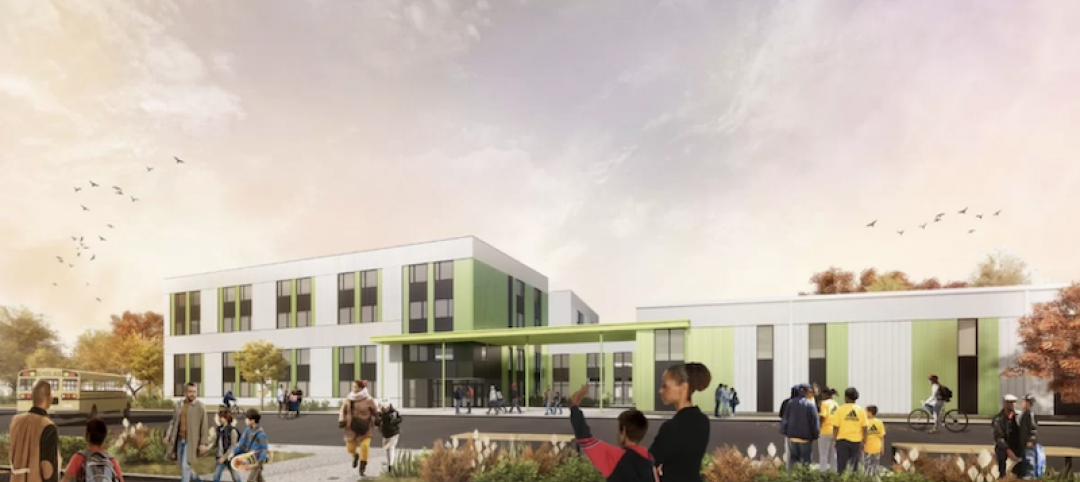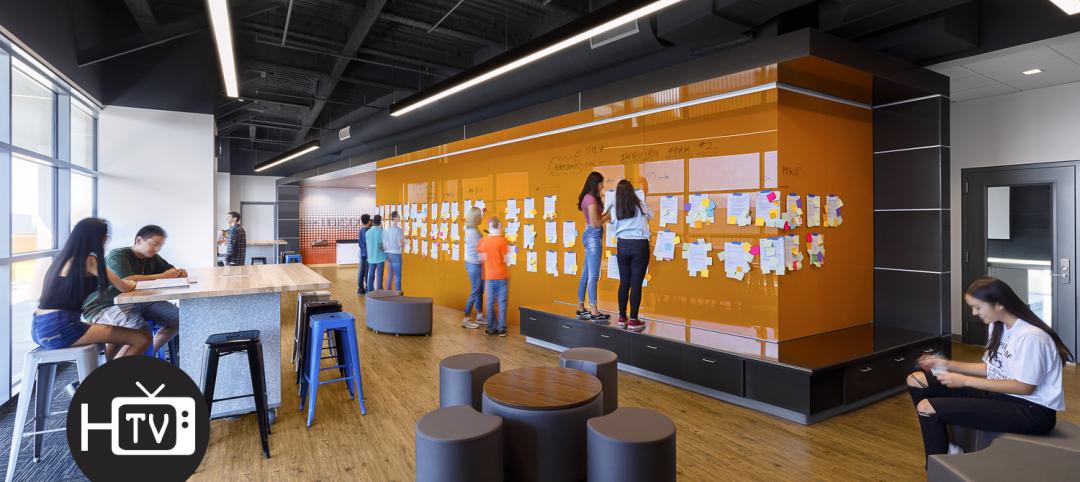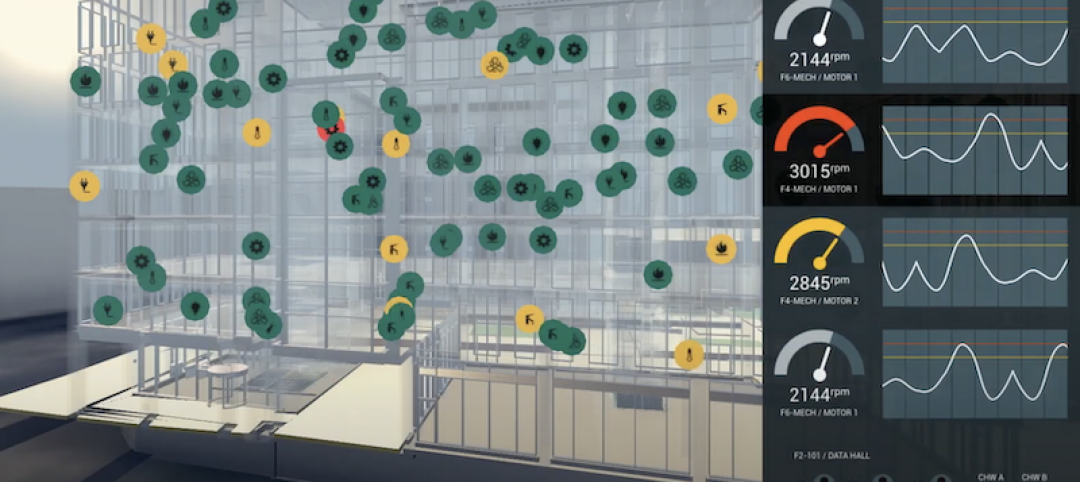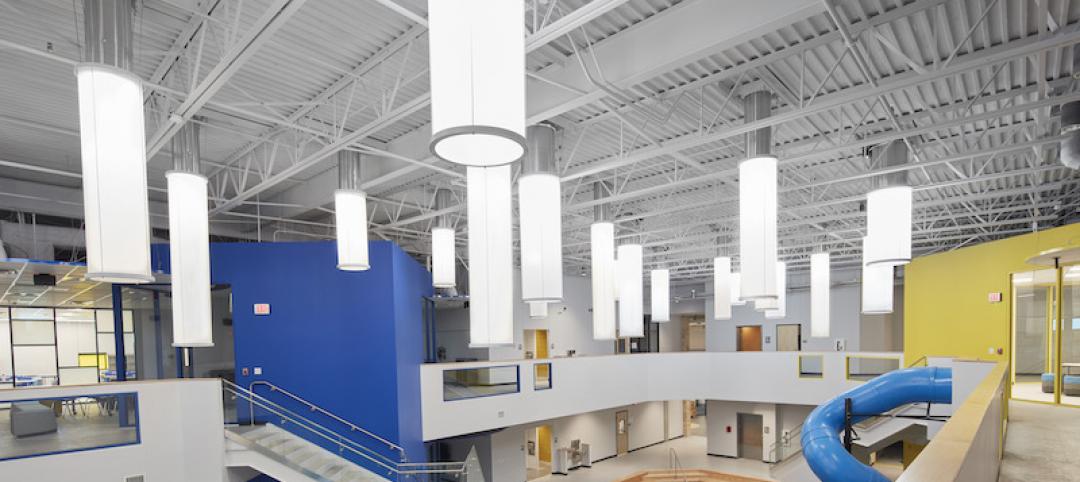Jim Wilson thinks that, in their haste to make their schools modern and efficient, some school districts are installing energy management systems that are overtaxing the ability of their maintenance staffs.
Wilson owns JFW Inc., a 25-year-old project management company in Gaithersburg, Md. Most of the K-12 work he does is with private schools like Sidwell Friends, the Quaker school that President Obama’s daughters attend. Wilson says that Sidwell’s middle school has 3,000 contact points that have to be monitored, which puts a significant burden on the facility’s maintenance staff.
He says energy codes keep raising the complexity level of what’s being installed. Maintenance crews are having trouble keeping up with EMS technology that has jumped by leaps and bounds over the past 10 years. “We didn’t have all of these [air exchange] requirements that we do now,” he says.
Wilson recounts one school’s head of maintenance who was so flummoxed by the facility’s systems that he operated the building as if it were occupied 24/7 so he didn’t have to deal with the controls. “I got a call from the school asking why its electric bills were running sky high,” says Wilson.
Jim Deluge, a Project Executive with Turner Construction, believes that maintenance staffs have a responsibility to “catch up” to the sophistication level of these new EMS systems. On the flip side, HMC Architects’ Sandy Kate thinks problems could be reduced if maintenance staff were included in early planning meetings before construction begins.
School district officials who recognize this potential problem but still want state-of-the-art operating systems will sometimes outsource the monitoring. DRL Group’s Jim French says his firm’s engineers have the ability to remotely monitor a client’s systems and let that school know almost immediately if anything’s askew.
“You have to be careful not to get too exotic,” says Fanning Howey’s Chuck Tyler. The design firm recently worked with a school district in Belleville, Mich., that demanded the systems for a 320,000-sf high school be simple enough for the district’s current maintenance personnel to manage.
Wilson contends that some schools simply don’t need the high-octane systems they specify. One project he worked on called for a $180,000 EMS. What ultimately got installed, he says, was a $40,000 system “that can do pretty much what’s needed in the building” and matches the skill set of the maintenance team.
When school districts demand the latest and greatest, they need to think about how those choices will impact the district’s facilities employees. On one recent project in Connecticut, Wilson had the contractor conduct six months of training sessions for the maintenance staff. “You can’t learn this stuff in two days of classes.”
Related Stories
K-12 Schools | Aug 13, 2021
A new P3 guide for K-12 school construction is released
This alternative financing isn’t a silver bullet, but it does provide options to cash-strapped districts.
Contractors | Jul 23, 2021
The aggressive growth of Salas O'Brien, with CEO Darin Anderson
Engineering firm Salas O'Brien has made multiple acquisitions over the past two years to achieve its Be Local Everywhere business model. In this exclusive interview for HorizonTV, BD+C's John Caulfield sits down with the firm's Chairman and CEO, Darin Anderson, to discuss its business model.
K-12 Schools | Jul 9, 2021
LPA Architects' STEM high school post-occupancy evaluation
LPA Architects conducted a post-occupancy evaluation, or POE, of the eSTEM Academy, a new high school specializing in health/medical and design/engineering Career Technical Education, in Eastvale, Calif. The POE helped LPA, the Riverside County Office of Education, and the Corona-Norco Unified School District gain a better understanding of which design innovations—such as movable walls, flex furniture, collaborative spaces, indoor-outdoor activity areas, and a student union—enhanced the education program, and how well students and teachers used these innovations.
K-12 Schools | Jun 29, 2021
A Maryland school system launches a P3 program to speed up K-12 school design, financing, and construction
Gilbane and Stantec are part of a consortium that breaks ground on six new schools this week.
Resiliency | Jun 24, 2021
Oceanographer John Englander talks resiliency and buildings [new on HorizonTV]
New on HorizonTV, oceanographer John Englander discusses his latest book, which warns that, regardless of resilience efforts, sea levels will rise by meters in the coming decades. Adaptation, he says, is the key to future building design and construction.
K-12 Schools | Jun 20, 2021
Los Angeles County issues design guidelines for extending PreK-12 learning to the outdoors
The report covers everything from funding and site prep recommendations to whether large rocks can be used as seating.
Wood | Jun 10, 2021
Three AEC firms launch a mass timber product for quicker school construction
TimberQuest brand seeks to avoid overinvestment in production that has plagued other CLT providers.
Digital Twin | May 24, 2021
Digital twin’s value propositions for the built environment, explained
Ernst & Young’s white paper makes its cases for the technology’s myriad benefits.
Daylighting | Mar 7, 2021
Texas intermediate school lets the sun really shine in
Solatube tubular daylighting devices bring sunlight into the two-story commons/media space for 600 students in grades 3-5 at Sunnyvale Intermediate School.
Market Data | Feb 24, 2021
2021 won’t be a growth year for construction spending, says latest JLL forecast
Predicts second-half improvement toward normalization next year.







![Oceanographer John Englander talks resiliency and buildings [new on HorizonTV] Oceanographer John Englander talks resiliency and buildings [new on HorizonTV]](/sites/default/files/styles/list_big/public/Oceanographer%20John%20Englander%20Talks%20Resiliency%20and%20Buildings%20YT%20new_0.jpg?itok=enJ1TWJ8)









